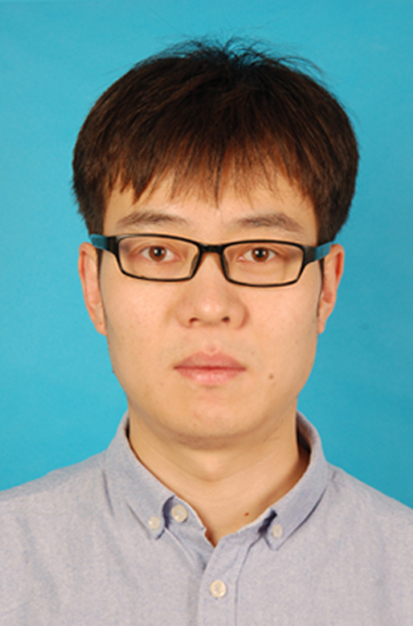
Speakers
SPEAKERS |

Prof. Hamid Reza Karimi
Politecnico di Milano, Milan, Italy
Biography: Hamid Reza Karimi received the B.Sc. (First Hons.) degree in power systems from the Sharif University of Technology, Tehran, Iran, in 1998, and the M.Sc. and Ph.D. (First Hons.) degrees in control systems engineering from the University of Tehran, Tehran, in 2001 and 2005, respectively. Since 2016, he has been an associate professor of Applied Mechanics with the Department of Mechanical Engineering, Politecnico di Milano, Milan, Italy. His current research interests include control systems and mechatronics with applications to automotive control systems, vibration systems, robotics, and wind energy.
Prof. Karimi is a Member of Academia Europa (MAE), a Distinguished Fellow of the International Institute of Acoustics and Vibration (IIAV), a Fellow of The International Society for Condition Monitoring (ISCM), Member of Agder Academy of Science and Letters and also a member of the IFAC Technical Committee on Mechatronic Systems, the IFAC Technical Committee on Robust Control, and the IFAC Technical Committee on Automotive Control. He is serving as Chief Editor, Subject Editor, Technical Editor, or Associate Editor for some International Journals and Book Series Editor for Springer, CRC Press, and Elsevier.
Prof. Karimi has been awarded as the 2016-2021 Web of Science Highly Cited Researcher in Engineering, the 2020 IEEE Transactions on Circuits and Systems Guillemin-Cauer Best Paper Award, August-Wilhelm-Scheer Visiting Professorship Award, JSPS (Japan Society for the Promotion of Science) Research Award, and Alexander-von-Humboldt-Stiftung Research Award, for instance. He has also participated as General Chair, keynote/plenary speaker, distinguished speaker, or program chair for several international conferences in the areas of Control Systems, Robotics, and Mechatronics.
Title: Deep Information Fusion for Mechanical Fault Diagnosis
Abtract: Deep learning methods for fault diagnosis play a critical role in the monitoring and detecting operating conditions of the mechanical equipment. However, the developed algorithms based on single-source sensor and data features exhibit some deficiencies for the complex and harsh realworld factory environments. Therefore, this talk addresses some high accuracy and reliable deep learning-based algorithms to identify the fault state of the rotating machinery, considering some issues of the deep learning algorithms, such as the limited training samples, feature extraction capability, interpretability as well as multi-source information fusion for mechanical fault diagnosis.

Prof. Ning Sun
Nankai University, China
Biography: Ning Sun received the B.S. degree in measurement & control technology and instruments (with honors) from Wuhan University, Wuhan, China, in 2009, and the Ph.D. degree in control theory and control engineering (with honors) from Nankai University, Tianjin, China, in 2014. He is a Senior Member of the IEEE. He is currently a Professor with the Institute of Robotics and Automatic Information Systems, Nankai University, Tianjin, China. His research interests include intelligent control for mechatronic/robotic systems with an emphasis on (industrial) applications.
Dr. Sun received the Machines 2021 Young Investigator Award, the prestigious Japan Society for the Promotion of Science (JSPS) Postdoctoral Fellowship for Research in Japan (Standard), the Wu Wenjun Artificial Intelligence Excellent Youth Award in 2019, the ICCAR 2022 Young Scientist Award, the China 10 Scientific and Technological Developments in Intelligent Manufacturing of 2019, several outstanding journal/conference paper awards, etc. He serves as an Associate Editor for several journals, including IEEE Transactions on Industrial Electronics, IEEE Transactions on Systems, Man, and Cybernetics: Systems, IEEE Transactions on Intelligent Transportation Systems, IEEE Systems Journal, and Journal of Field Robotics. In addition, he has been an Associate Editor of the IEEE CSS Conference Editorial Board since July 2019, and he is/was an Associate Editor for the top robotics conferences IEEE ICRA and IEEE/RSJ IROS.
Title: Intelligent Control for Complex Underactuated Cranes With Applications
Abstract: As heavy industrial engineering machines, cranes have been playing very important roles in various fields, such as logistics, construction, metallurgy, and manufacturing, among others. The major task for cranes is to transport cargos from their initial positions to desired locations rapidly and accurately, with negligible swing. At present, most cranes used in practice are manipulated by human operators, which exhibits such drawbacks as low efficiency, poor anti-swing performance, incorrect operations, and high risks. Therefore, the problem of anti-swing positioning control for cranes important both theoretically and practically. Cranes are typically underactuated systems, i.e., they have fewer control inputs than their degrees of freedom (DoFs), making their control problem challenging. In this presentation, I will first share some of our recent results on dynamics analysis, motion planning, and intelligent control of different crane systems, including overhead cranes, rotary cranes, tower cranes, ship-mounted cranes, etc., with hardware experiments and applications. Then, some of our extended and related researches on robotic systems with similar dynamic characteristics will also be discussed briefly, including self-balance robots, pneumatic artificial muscle (PAM)-actuated robots, metal ingot polishing-oriented industrial robots, and so on.

Prof Richard (Chunhui) Yang
Western Sydney University
Prof Richard Yang joined Western Sydney University in January 2012 as Associate Professor of Mechanical Engineering and Smart Structures and he was promoted as Professor in 2018. In research, Prof Yang is an internationally recognised research leader on fields of research include Advanced Manufacturing, Additive Manufacturing (3D printing) of metals, polymers and composites, Advanced Engineering Materials & Structures, Circular Manufacturing & Circular Economy, Defence Technology, Industry 4.0, Machine Condition Monitoring (MCM) & Structural Health Monitoring (SHM), Metal Forming, Metal Surface Treatment, etc. He has been awarded over $12m in competitive research grants, including 12 ARC grants, 2 CSIRO/NSF Convergence Accelerator on recycled plastic waste as well as more than 20 from government and/or industry. As for scientific publication, he has published more than 300 high-quality technical publications in top scientific journals, books, and conferences as a major contributor in his relevant fields of research across Mechanical, Mechatronic, Manufacturing, Materials, Aerospace, Civil, Defence, etc. As for external service, he is serving as assessor for Australian Research Council (ARC), editor board member, conference committee member, reviewer of international journals and conferences, examiner for Master and PhD thesis, etc. He is Editor-in-Chief of 2 scientific journals, Associate Editor of 2, and on the Editorial Board of 5. He has been on the ANSHM Executive and the Editor of ANSHM Newsletter since 2016.
Title: Latest Trends of Digital Manufacturing and Design for Advanced Manufacturing
Abstract: Currently, Digital Manufacturing and Design (DMD) is powerful tools for Advanced Manufacturing (AM) under the framework of Industry 4.0, which is widely using three-level digital technologies including digitisation, digitalisation, and digital transformation all over the world. The manufacturing sector is experiencing the transition from traditional manufacturing to advanced manufacturing with 10 challenges. There are 10 advanced manufacturing technologies (AMTs) including Big Data Processing, Artificial Intelligence (AI) & Machine Learning, Augmented Reality (AR), Internet of Things (IoT), Additive Manufacturing, Advanced Materials, Robotics & Automation, Laser Machining & Welding, Nanotechnology and Network & IT Integration. They construct solid foundations for such a transition and make manufacturing more agile, flexible, and responsive to customers through optimising manufacturing and production systems. Those above-mentioned new AMTs provide great opportunities, powerful tools, and innovative approaches to the manufacturing industry to develop their business models, reshape their processes, market their products, and finally transit their manufacturing from traditional process to digital processes and become advanced manufacturers successfully. In this study, the latest trends of DMD for AM with the adoption of latest AM/Industry 4.0 technologies are explored in depth from nature, needs, challenges, opportunities, barriers, benefits, solutions, gaps to future directions. It indeed optimises all aspects of the value chain, from concept to end-of-life considerations and significantly contributes to the development of new business, new markets, new products, new technologies and new ways to manufacture existing and innovative products.

Prof. Shubin Yan
North University of China, China
Biography: He is a member of the Seventh Council of the China Association of Higher Education, Deputy Secretary General of the Committee of Measurement and Control Technology and Instrument of the Chinese Association of Higher Education, Permanent Member of the Chinese Physical Society, Senior Member of the Chinese Institute of Electronics (CIE), Senior Member of the China Instrument and Control Society (CIS), Senior Member of the Chinese Society of Micro-Nano Technology, and so on.
He is mainly engaged in research work related to the fields of micro-nano optical quantum sensing, micro-nano fabrication, and instrumentation science. His current research interests are in the fields of molecular and atomic physics, quantum sensing, micro-nano processes, and the theory and system integration of high Q optical micro-cavity-based sensor devices. In recent years, he has published in Applied Physics Letters, Physical ReviewA, Optics Express, Scientific Reports, Applied Physics B, Sensors, Optics Communication, Micromachines, Chinese PhysicsB and other domestic and international journals published 166 academic papers, of which more than 100 SCI, EI included. Prof. Yan has been authorized 42 national invention patents; participated in the publication of academic monographs (Science Publishing House), and edited two textbooks (China Chemical Industry Publishing House). He has presided over 6 projects of the National Natural Science Foundation of China (5 at the surface, and 1 project of the "Major Research Program on Nano Manufacturing Science" of the National Natural Science Foundation of China), 16 provincial and ministerial projects, and 1 project of "National Major Research Program" of the Ministry of Science and Technology as the person in charge of the sub-topic. As a sub-topic leader of the Ministry of Science and Technology "National Major Research Program", he has participated in the research of 4 National 973 Preliminary Research Special Projects, 5 National Natural Science Foundation of China, and 12 other provincial andministerial level projects.
Title: Key Technologies and Safety Detection Systems Based on MEMS Hydrogen Sensing
